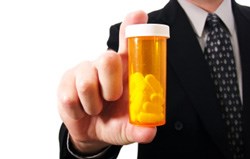
The article states that a practice of entering into agreements between brand manufacturers and manufacturers of generic drugs to delay launch of a generic version of a branded drug are entered into and thus force consumers to pay 80 percent more for their medication. These are typically referred to as "pay for delay" agreements.
From my experience in pharmaceutical litigation it is highly unlikely that in South Africa - as in the US, pay for delay agreements are entered into. It's just not the form that these agreements take.
It's rather a case of unilateral conduct which is perfectly legitimate as a result of the exclusivity offered by a patent.
It's unfortunate that the article did not address the differences between the legal and regulatory framework in South Africa versus that of the United States.
As correctly pointed out by Vicki St Quintin - chief operations officer of the Pharmaceutical Industry Association of SA (PISA), in the article, South Africa has a very different system and its legislation, for example, does not allow for the term of a patent to be extended beyond its 20 years.
In effect, and by the time a product comes onto market, the patentee has between five to eight years of effective protection on the market. The considerations on how and what a patentee should be able to recoup for its research and development efforts are therefore very different in South Africa than in the US for example.
Furthermore, the US framework encourages a generic manufacturer to challenge patents by offering a 180 day exclusivity period from when the first generic launches its product. The South African framework simply does not have this. In any event, the report by the FTC concludes that despite the launch of authorised generics, generic manufacturers still enter the market and the number of patent challenges remain robust and have increased.
The article also did not address the fact that an authorised generic is offered at a reduced price, giving relief to the consumer and also allowing for price competition to take place when a generic manufacturer launches its product. Of course, it should be borne in mind that as the patentee of a particular drug, and during the period of patent protection, the patentee is perfectly entitled to bring out as many brands of its drug as it wants - that's the benefit of a patent in return for disclosing to the public what the drug consists of and how it is made up so that others may conduct research and development in respect thereof and improve upon it.
Unfortunately the issue is much more complex than what the article portrays and touches upon the fundamental principles of patent law, South Africa's patent system, the economics of first generic entry and the careful balancing act that must be undertaken between competition law and intellectual property law with a proper consideration of the dynamics of the pharmaceutical market in South Africa which is very different to countries such as the US and Europe.
For more information contact:
Adams & Adams
Alexis Apostolidis - partner, Patent Litigation, and head of the Competition Law Group
Or
Jac Marais - partner - Competition Law Group
+27 (0) 12 432 6000